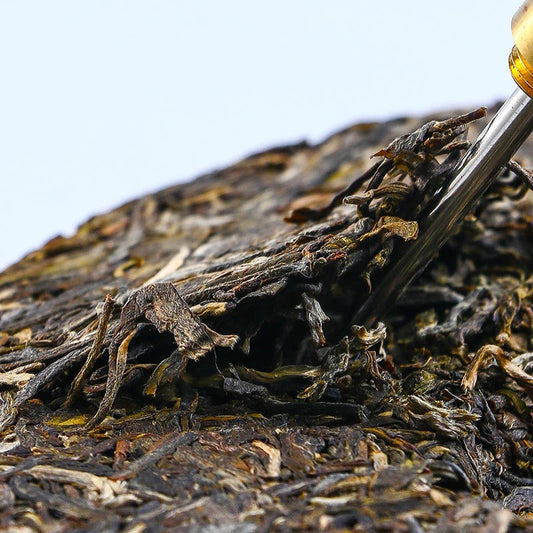Overview
Green tea with lemon has become a go-to beverage for those seeking a refreshing and healthy drink. However, while the combination of green tea and lemon is packed with antioxidants and vitamin C, it’s crucial to understand the potential side effects that can accompany regular consumption. From digestive disturbances like acid reflux and bloating to more surprising issues such as headaches, dizziness, and even impacts on your tooth enamel, drinking this tea isn't without its risks. By exploring these side effects, this article will help you make informed decisions about how to enjoy green tea without side effects, ensuring you reap the benefits without any unpleasant surprises.
Table of Content
- Introduction
- Common Side Effects of Green Tea with Lemon
- Acid Reflux and Heartburn
- How Lemon Affects the Caffeine Content in Green Tea
- Potential Allergic Reactions to Lemon in Tea
- The Impact on Tooth Enamel
- Conclusion
Introduction
Green tea with lemon is a popular beverage choice for many, thanks to its refreshing taste and numerous health benefits of Green tea. However, like any drink, it comes with potential side effects that you should be aware of, especially if you consume it regularly. From digestive issues to sleep disturbances, the combination of green tea and lemon can impact your health in various ways. We'll explore the common side effects associated with green tea with lemon, help you make informed decisions.

Common Side Effects of Green Tea with Lemon
Drinking green tea with lemon, while refreshing and healthful, can lead to some common side effects, particularly if consumed in large quantities. The acidity of lemon can exacerbate digestive issues, causing symptoms such as heartburn, acid reflux, and bloating. Additionally, the caffeine in green tea may trigger headaches, dizziness, and sleep disturbances, especially in those sensitive to caffeine. Some individuals might experience nausea or vomiting if they consume green tea on an empty stomach or in excessive amounts. The acidity from lemon also poses a risk to tooth enamel, potentially leading to increased sensitivity and dental issues over time.
Digestion Issues
When you add lemon juice to green tea, the acidity of the beverage increases, which can disrupt your digestive system. This heightened acidity can slow down the digestive process, leading to uncomfortable symptoms such as heartburn, acid reflux, bloating, and even constipation. The acid in lemon can irritate the stomach lining and the oesophagus. Making it crucial for individuals prone to digestive issues to be mindful of their lemon tea intake.
Acid Reflux and Heartburn Effects of Green Tea with Lemon
Drinking green tea with lemon in excess can stimulate the production of stomach acid, which can lead to discomfort for many individuals. Due to its naturally acidic nature, lemon tea can provoke or worsen symptoms of heartburn and acid reflux. When consumed frequently or in large amounts, the acidity in lemon tea triggers the stomach to produce more acid, which can irritate the esophagus, leading to a burning sensation. Potentially aggravating existing acid reflux conditions. Monitoring your lemon tea intake is essential, especially if you're prone to acid-related digestive issues. To avoid these uncomfortable side effects.

How Lemon Affects the Caffeine Content in Green Tea
There is some debate about whether adding lemon to green tea increases its caffeine content. Some sources suggest that the citric acid in lemon can enhance the solubility of caffeine in water, potentially increasing the caffeine content of the tea. However, other studies indicate that adding lemon does not affect the caffeine levels.
Typically, an 8 oz cup of green tea contains between 30 to 50 mg of caffeine, which is less than other caffeinated beverages like coffee or black tea. The caffeine content can vary depending on factors such as the brewing method, the processing style of the tea leaves, and their age. Additionally, adding lemon to green tea can increase the levels of catechins, beneficial antioxidants that contribute to the health benefits of green tea. Lemon tea also offers a good source of vitamin C, which supports the immune system. Making it a healthy addition to your diet, despite the varying opinions on its effect on caffeine levels.
Potential Allergic Reactions to Lemon in Tea
Although uncommon, some individuals may experience allergic reactions to lemons, particularly if they are allergic to other citrus fruits like oranges, grapefruits, or limes. Symptoms of a lemon allergy can include itching, burning, or swelling of the mouth and throat, a sore throat, a cough, or a metallic taste in the mouth. Some people may also experience gastrointestinal symptoms such as nausea, vomiting, or diarrhea, as well as skin reactions like hives, eczema, or rashes. Lemon allergies can also cause nasal congestion, sneezing, or a runny nose. In rare and severe cases, a life-threatening reaction known as anaphylaxis may occur, which requires immediate medical attention.
The Impact on Tooth Enamel
The acidity in lemon poses a significant risk to your tooth enamel, and when combined with tea, the risk is heightened. The acidic nature of lemon can accelerate the erosion of tooth enamel, potentially leading to tooth decay and loss if consumed frequently. The combination of tea and lemon increases the acidic environment in your mouth, which can soften the enamel and make your teeth more vulnerable to damage. Additionally, you may experience increased tooth sensitivity and pain after drinking lemon tea, especially if your enamel has already been compromised. To protect your teeth, it's important to rinse your mouth with water after drinking lemon tea and avoid brushing your teeth , as this can further erode the softened enamel.
Conclusion
While green tea with lemon offers a delightful beverage option, it's important to be mindful of the potential side effects. By understanding how it can affect your digestion, sleep, and overall well-being, you can enjoy this tea without compromising Stay informed and take steps to enjoy green tea with lemon safely, enhancing your tea-drinking experience without the downsides.
Q&A
Q: Can green tea with lemon cause digestive issues?
A: Yes, green tea with lemon can cause digestive issues, particularly if consumed in large quantities. The added acidity from lemon juice can irritate the stomach lining and slow down digestion. If you have a sensitive digestive system, it's best to moderate your intake.
Q: Does adding lemon to green tea increase its caffeine content?
A: There's some debate about whether lemon increases the caffeine content of green tea. Some sources suggest that the citric acid in lemon can enhance caffeine solubility, potentially increasing its levels in the tea. However, other studies show no significant change. Regardless, green tea typically contains less caffeine than coffee or black tea.
Q: Can drinking green tea with lemon cause headaches?
A: Green tea contains caffeine, which can trigger headaches in some people, especially those sensitive to caffeine. If you're prone to headaches or experience them frequently, drinking green tea with lemon might exacerbate this issue. Limiting your intake or choosing a caffeine-free alternative could help prevent headaches.
Q: Is it possible to have an allergic reaction to green tea with lemon?
A: Although rare, it is possible to have an allergic reaction to lemons, particularly if you are allergic to citrus fruits. Symptoms of a lemon allergy can include itching, swelling of the mouth and throat. If you experience any of these symptoms, seek medical attention immediately.
Q: How does green tea with lemon affect tooth enamel?
A: The acidity of lemon can weaken tooth enamel, making your teeth more susceptible to decay and sensitivity. When combined with tea, the risk of enamel erosion increases. To protect your teeth, it's advisable to rinse your mouth with water after drinking green tea with lemon.






